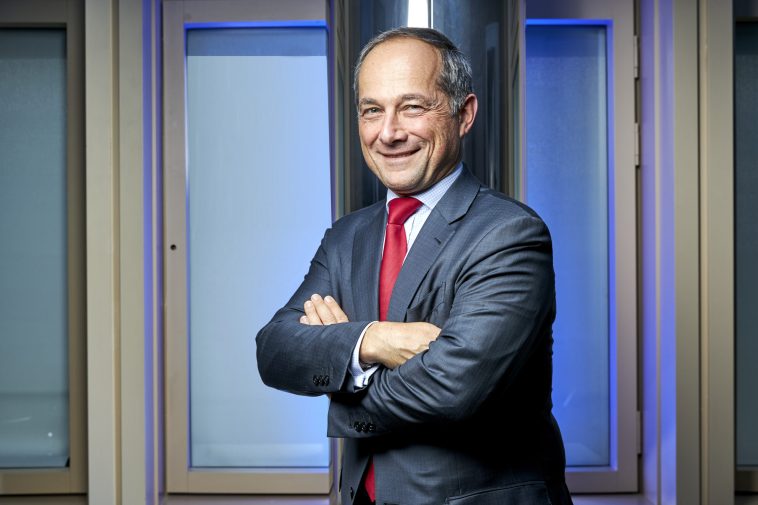The bank’s YUP mobile money offering, launched in 2017, has 1.4 million clients in six west African countries. Société Générale is now waiting for approval to offer YUP from regulators in Madagascar.
The plan would allow the bank to work with Malagasay companies by providing them with a secure transaction system, CEO Frédéric Oudéa said in an interview at the bank’s headquarters at La Défense.
- “The benefits of mobile money outweigh the risks” and will help to promote financial inclusion, Oudéa said. “Secure payment systems are needed and these will help businesses to achieve scale more safely.” Such systems reduce the cost of capital and transaction costs for companies, he said.
According to a report from the World Bank in October, the share of the Malagasy population with access to bank and mobile money savings accounts remains low by regional standards, but has increased in recent years to 11% and 7% respectively in 2018.
Limited Internet access and high connection fees remain barriers to extending financial inclusion, with 65.9% of people still unconnected a mobile network, the World Bank says.
The country’s working age population is currently increasing by more than 7% a year, according to the World Bank.
- “Demography supports growth,” Oudéa argued.
- “Very few banks have such an African presence. We can make a difference.”
Managing Expectations
The rate of electrification in Madagascar lags that of Africa. Just 15% of the population has access to electricity, falling to 4% in rural areas.
That makes it important for mobile money providers to manage expectations, argues John BaRoss, founder and president of Fincclude, a non-profit knowledge community on financial inclusion based in New York.
- “Unplanned outages are possible so it’s prudent to not put 100% of one’s money into mobile money,” he says.
- BaRoss points to experience in some African countries where governments have imposed fees and taxes on mobile money transactional activities after the unbanked have been enticed into using mobile money.
- This has caused many recently financially included users to abandon mobile money due to “confiscatory tax policies,” he says.
Further, mobile money can create an impression of instant reliability and so lull users and regulators into a false sense of security. “This is a potential risk if expectation-setting is misguided,” BaRoss argues. “Decision makers and providers best serve their nation by being candid” about the risks involved.
Wider Inclusion
The plan is the “logical next step” in the Société Générale’s digitization efforts, says World Bank consultant Anne-Elisabeth Costafrolaz. Most commercial banks in Madagascar already provide digital services to their clients and work with the mobile money operators, she says.
The majority of the population in Madagascar is more still comfortable with tangible cash rather than virtual money, and levels of financial literacy and digital literacy are “rather low,” Costafrolaz says. Moreover, she adds, mobile service coverage is still incomplete.
Banks in Madagascar charge high account fees, are clustered in urban areas, and the requirements for opening an account such as identification documents, also present a barrier, Costafrolaz says. “In such a context, mobile money provides an alternative for the unbanked to store and send money more conveniently and safely.”
Experience in countries such as Somalia shows that the benefits of mobile money exceed the risks in early-stage development, she says.
- Mobile money has an “immense potential to foster financial inclusion, in particular amongst the most vulnerable groups.”
- It opens opportunities for accessing financial services, such as credit to start or grow a business, as well as insurance. Mobile money also increases women’s financial independence, she argues.
Costafrolaz does not see Madagascar’s low rate of electrification as an obstacle. People usually find a way to regularly charge their phone, even if they have to pay, she says. A network of 19,000 cash points in Madagascar makes over-the-counter transactions relatively easy for people who don’t have a phone or access to electricity, she says.
Bottom Line: Mobile money has its part to play in Madagascar’s development if expectations are carefully managed.


